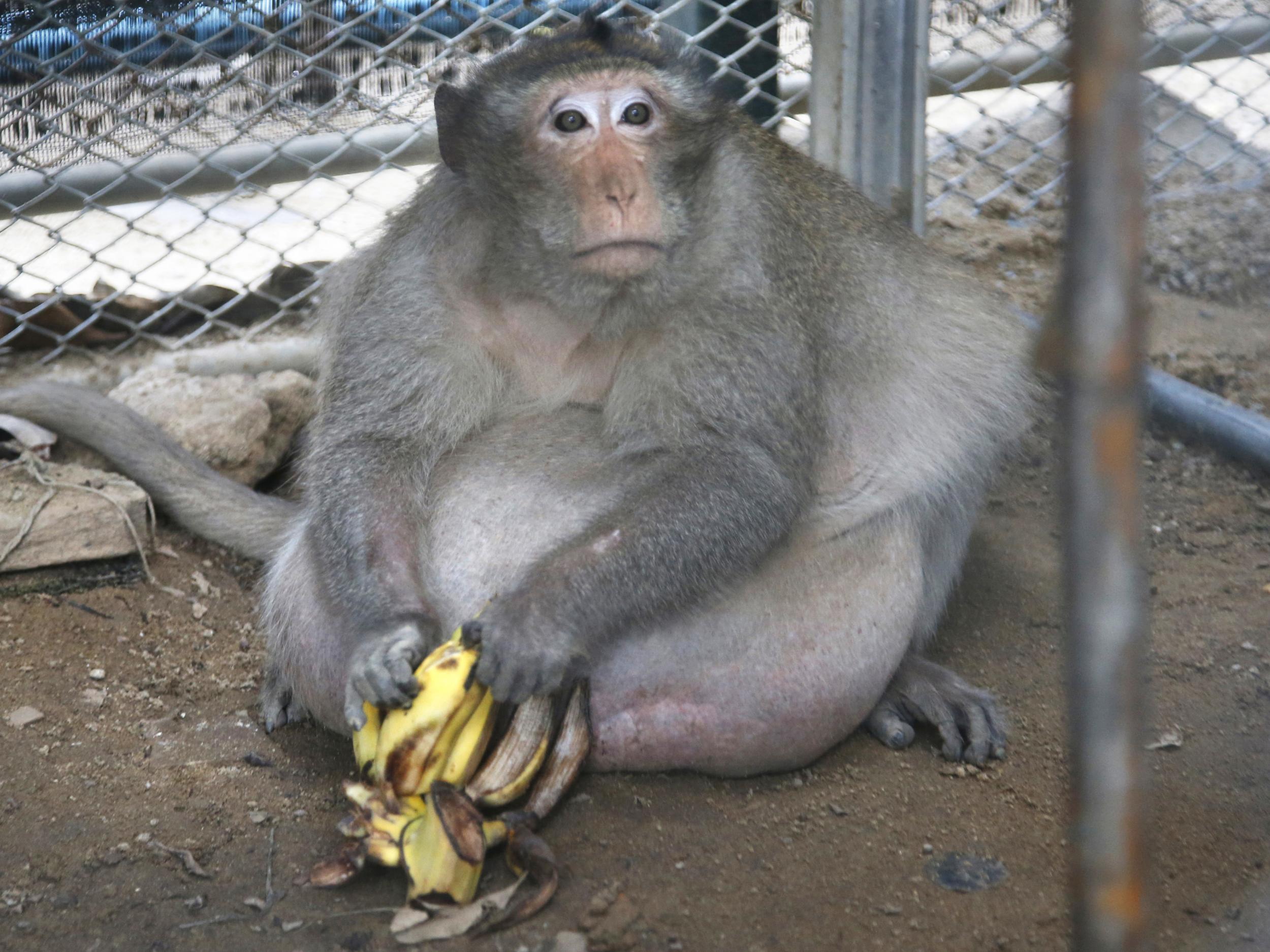Uncle Fat sits on a throne of half-eaten corn cobs, crumpled juice boxes, and the remains of fruits eaten long ago. He is the king of his junk food domain, and we bow down before him.
For context, "Uncle Fat" is the affectionate nickname locals have given this overweight Thai monkey. Less an insult, more a status symbol.
Wild monkeys roam free in many parts of Thailand, attracting tourists who feed and play with the animals. Most of the monkeys are macaques like Uncle Fat, and they typically weigh around 9 kilograms (20 pounds).
According to Associated Press, Uncle Fat weighs three times that, tipping the scales at around 26 kilograms (60 pounds).
To reduce his risk for obesity-related diseases like heart failure and diabetes, Thai officials rescued and put him on a diet "limited to 400 grams worth of lean protein, fruits and vegetables twice a day," said Supakarn Kaewchot, a veterinarian in charge of the monkey's diet.
This is the mythical "Friday Monkey." Retweet to have a great weekend. Keep scrolling to have a terrible weekend. pic.twitter.com/CwTHoFTDMc
— CAFE (@cafedotcom) May 19, 2017
Supakarn said she hopes that within a few months they can consider releasing him to the wild. She said Uncle Fat is an example of why people shouldn’t feed wild monkeys unhealthy food.
“After he ate food given by humans for a while, he developed a fat mass, which became a type of benign tumor,” Supakarn said.
However, he wouldn't fight go on the diet without a fight, officials told the Guardian.
“It was not easy to catch him,” said Kacha Phukem, the wildlife official who conducted the capture and rescue on 27 April. “He was the leader of his pack, and when I tried to go in, I had to fight off a flock of them with sticks.”

The subordinate monkeys fed into Uncle Fat’s bad habits. “He had minions and other monkeys bringing food for him but he would also re-distribute it to younger monkeys,” said Supakarn.
She said Uncle Fat is an example of why people shouldn’t feed wild monkeys unhealthy food.
“I understand that people feel sorry for the monkeys and want to feed them when they see them,” Supakarn said. “But please don’t feed them food that people like to eat like snacks and soda. It is very bad for their health and the problem is entirely man-made.”
Source : Associated Press


















